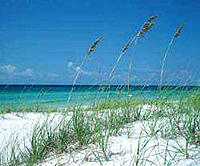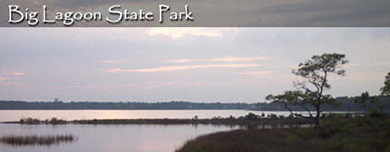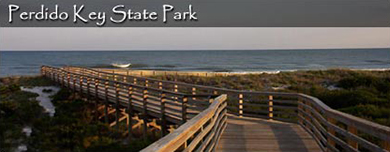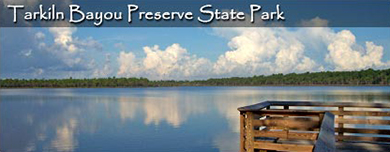Explore Escambia County

Located at the extreme western end of the Florida Panhandle, Escambia is the home county for the Northwest Region of the Florida Public Archaeology Network. Escambia also is home to the University of West Florida and the Pensacola Archaeological Society. Pensacola, Escambia County's seat, is the nation's oldest European settlement, first colonized by the Spanish in 1559.
County Offices and Organizations
Museums
Underwater Sites

The "Mardi Gras Shipwreck" sank some 200 years ago about 35 miles off the coast of Louisiana in the Gulf of Mexico in 4,000 feet (1220 meters) of water. Research continues into the identity and history of the vessel.

USS Massachusetts
First used for battle in the Spanish-American war and later refitted for use as a training ship midshipmen and for experimental artillery training. She was finally decommissioned and scuttled just outside the entrance to Pensacola Bay.

The Emanuel Point Shipwreck
Florida's earliest shipwreck site is believed to be part of the 1559 expedition of Tristán de Luna. Most of his fleet was destroyed by a hurricane only a month after arriving in Pensacola.

Deadman's Island Shipwreck
In 1994, the remains of three barrel wells on the present shore of Deadman's Island appeared after the eroding effects of a storm.
State Parks

Big Lagoon State Park is a coastal park which separates the mainland from Perdido Key and the Gulf of Mexico. It contains saltwater marshes, beaches, shallow bays, nature trails, and open woodlands attracting a wide variety of birds. Visitors enjoy camping, swimming, fishing, boating, canoeing, and hiking. Located on County Road 292A, 10 miles southwest of Pensacola.

Perdido Key is a 247-acre barrier island near Pensacola on the Gulf of Mexico. White sand beaches and rolling dunes covered with sea oats make this park a favorite destination for swimmers and sunbathers. Surf fishing is another popular activity. Perdido Key State Park provides boardwalks from the parking lot allow visitors to access the beach without causing damage to the fragile dunes and beach vegetation. Covered picnic tables overlooking the beach provide a great place for family outings. Located 15 miles southwest of Pensacola, off State Road 292.

The Tarklin Bayou Preserve is home to rare and endangered plant species as well as the rare, carnivorous white-top pitcher plant which is unique to the Gulf Coast. Almost 100 other rare plants and animals depend on the wet prairie habitat, including the alligator snapping turtle, sweet pitcher plant, and Chapman's butterwort. A boardwalk offers visitors a view of the wild and beautiful Tarklin Bayou. Located about 1.5 miles south of the intersection of U.S. 98 and State Road 293.
